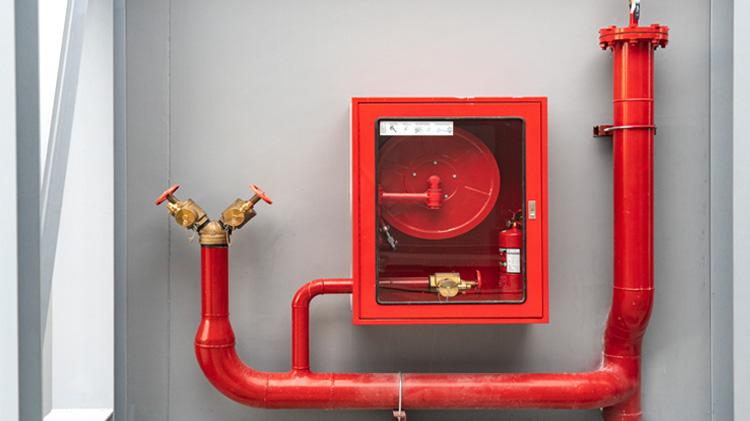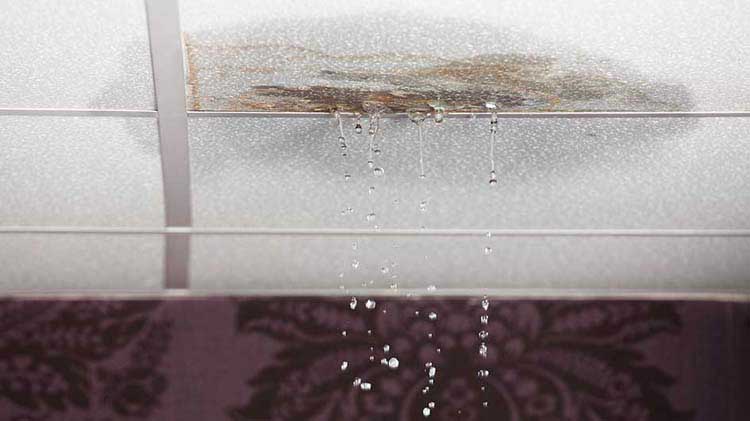Fire safety for businesses
Learn workplace fire safety and prevention tips to help protect your employees and business.
Fire prevention tips for your business
A fire can cause injuries to people and severe damage to business structures, equipment and inventory. According to the U.S. Fire Administration, in 2020, fires caused about $932 million in business property damage. As a business owner, focusing on fire risk assessment, fire prevention and staff education can help reduce your chance of fire and smoke damage. Here are three tips to help.
Fire risk assessment for your business
The National Fire Protection Association offers handbooks and other publications on the fire safety code for businesses. If offered by your local government, a visit from a fire marshal can be a great step for your fire prevention plan. If a marshal visit isn't available, ask for a workplace fire risk assessment from your building's property manager.
Have fire protection equipment
- If you have an automatic sprinkler system in place, this will provide primary fire protection for your business.
- Standard fire safety practices call for smoke detectors and fire extinguishers on every floor. Employees should be aware of the location of fire extinguishers throughout the building.
- Multipurpose extinguishers are preferred, which will douse most small fires without shorting out your electronics.
- Equip your employees with emergency kits.
Fire safety in the workplace
Here are some prevention and safety measures that may help keep your employees and business property safe:
- Fire safety plan - Employees should know what to do if there's a fire, including calling 911 immediately. Conduct a fire drill at least once a year to keep employees aware of your workplace fire safety protocol.
- Consider a safety officer - Designate a person as your office's fire prevention officer. Their duties may include composing escape routes and meeting points for employees, as well as keeping all of your safety plans, equipment and information updated.
- Install a sprinkler system - Sprinkler systems are cost effective and the best way to fight the spread of a fire. When sprinklers were present, fires were kept to the room of origin 97% of the time according to the National Fire Protection Association.
- Leave space for appliances - Leave some room behind appliances that heat up, like coffee machines and computers, to allow them to cool down. Keep all of your business appliances away from combustible materials, like paper or cloth. If possible, unplug these appliances at the end of the day as many business fires occur after typical operating hours.
- Check wiring and cords - Check power cords regularly for fraying, broken connectors or cracked insulation — these need to be replaced immediately. Only use one extension cord per outlet and follow manufacturer recommendations for maximum wattage when using power strips. Avoid "octopus wiring" when wires and plugs clutter around one outlet, as it could lead to an overload.
- Evacuation plan - In larger buildings, post a fire evacuation plan in several spots around the workplace, including every floor or level of a building. Do not include elevators in an evacuation plan; always use the stairs. Businesses with disabled employees should develop a detailed evacuation for those employees needing additional assistance in an emergency.
- First aid - In case of fire injuries, see that your employees are familiar with the location of the first-aid kit. Generally, kits should be kept where possible hazards may occur the most, such as in the kitchen.
- Flammable liquids - Cleaners and solvents give off vapors that may travel with natural air flow. These vapors may explode when ignited by a spark, such as a faulty electrical switch or a flame. Store flammable liquids in their original container or in a UL-listed safety can. Allow plenty of ventilation when using flammable liquids to help prevent fire injury or illness from breathing the vapors.
- Train employees - Educating your employees on machinery operations and safe handling of hazardous materials might minimize fire exposure and help avoid injuries in the workplace.
- Designate smoking areas - Establish an area away from the building where employees and visitors can have a safe space for smoking. Also provide commercial smoking receptacles for people to safely dispose of cigarette butts.
Now that you have learned about fire prevention tips for your business, you might be interested in tips to help protect your business property or read about loss control and prevention practices. Contact a State Farm® agent if you are interested in small business insurance or looking for coverage to fit your business needs.




